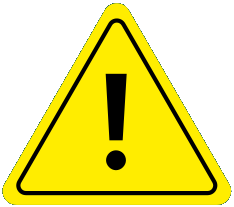Cardiac Nuclear Stress Test
What is a cardiac nuclear stress test?
Cardiac nuclear stress test, also known as a myocardial perfusion scan, uses small amounts of radioactive material to find out if any areas of your heart are not receiving enough blood flow. You will typically engage in exercise such as walking on a treadmill during a portion of the test. Lexiscan is a method used in place of walking on a treadmill for those who are unable to tolerate a treadmill test.
CONTACT US
Toll-Free: 800-631-1811
Phone: 218-631-3510
How do I prepare for the exam?
- If you have diabetes, eat breakfast and take your insulin as usual. Please check your blood sugar on the morning of the test.
- It is best not to eat for 4 hours prior to the test unless you have diabetes.
- No caffeine or decaffeinated food or drink for 12 hours before the test. This includes coffee, tea, soft drinks, energy drinks, chocolate, or medication containing caffeine.
You may take all medication. - No creams, oils, or lotions on skin. You may use deodorant.
- Wear comfortable clothing.
- You do not need a driver.
How long will the exam take?
Time may vary. Usually, the time is four hours.
How will I learn results?
The physician performing the test and a St. Cloud cardiologist will study the results and will consult with your provider. Your provider will then advise you of the results.
What will the exam be like?
- We will start an IV and give you a small amount of nuclear material through the IV. There will then be a 30-minute wait so that the material can circulate in your heart.
- There will be a wait of approximately 30-60 minutes when you will need to have something to eat. Then a second set of images will be done in the same way as the first set. This will take approximately 15 minutes. Following this, your test is complete.
- Pictures will be taken of your heart. You will lie under a camera with your arms above your head. The camera will travel across your chest taking resting images of your heart. This will take approximately 20 minutes. Movement or irregular heart rhythm may result in the need for additional time.
- Next, you will be connected to an EKG monitor and will sit in a recliner. A medication called Lexiscan will be injected through your IV, followed by a small amount of nuclear material. A physician will evaluate your EKG, and an RN or CEP will monitor your blood pressure every minute for five minutes.
- Once you reach the target heart rate, we will put a second small amount of nuclear material through your IV, and you walk for an additional minute. During the test, a physician will evaluate your EKG, and an RN or CEP will take your blood pressure frequently.
- There will be a wait of approximately 30-60 minutes when you will need to have something to eat. Then a second set of images will be done in the same way as the first set. This will take approximately 15 minutes. Following this, your test is complete.
Because we special order the nuclear material specifically for your examination and body type, we need to know 24 hours in advance if you need to cancel your test. Please call 218-631-7485 to cancel.

